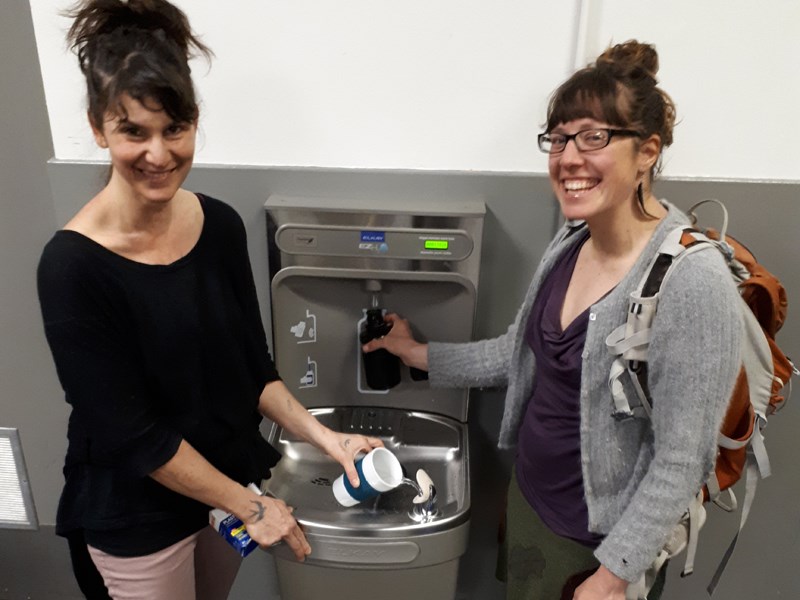As hard as it may be to believe, there was a time in the not-too-distant past when drinking water only came from a tap or local stream.
If we were thirsty for water, we used a drinking fountain, found a cup and the nearest sink, or we had our own filled bottle from home. It was not until 1973 that bottled water hit the market and then decades later it became popular.
It is a bit of a head scratcher to consider how we have become so dependent on the availability of single-use plastic bottles of water. We used to manage just fine without them. In a country that has such an abundance of fresh, healthy drinking water, it is even more of a mystery that we pay for water at all.
Here are some reasons to kick it old school and bring your own bottle next time you head out the door:
1. Tap water is free. Getting in the habit of packing a stainless steel or glass water bottle will save time and money.
2. Toxins from plastic water bottles are known to leach into the water itself.
3. Recycling plastic sounds better than it is in reality. Most often the plastic is downcycled into something of lower quality.
4. The bottle is used for a few hours, but plastic from the bottle will still exist 1,000 years from now.
5. Plastic pollution in our oceans is killing sea life.
6. The more plastic in the world, the more it ends up in our food chain.
7. City of Powell River council has banned the sale of bottled water at Powell River Recreation Complex and city hall.
8. Most bottled water is simply tap water in a plastic bottle with a fancy label.
Resources required for the small convenience of a single-use plastic water bottle hardly seem worth it, when efficient, reusable alternatives exist. It is time to bring your own bottle.
Let’s Talk Trash is Powell River Regional District’s waste-management education program.



